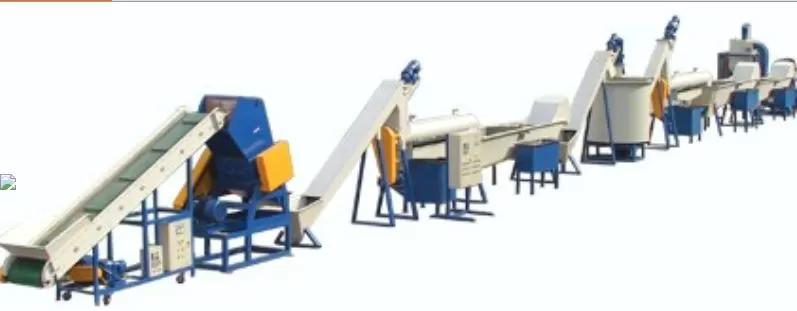Plastic waste is an ever-growing concern. We’re all aware of the environmental impact, but what can be done about it? Spain has taken a proactive approach by investing in innovative plastic recycling technologies.

Spain’s advancements in plastic recycling technology are setting new standards. These innovations not only help reduce waste but also promote sustainability and economic growth.
Let’s explore the exciting developments in Spain and how they’re revolutionizing the world of plastic recycling.
What Makes Spain’s Recycling Technologies Stand Out?
Spain has been at the forefront of recycling innovation. They’ve adopted cutting-edge technologies that enhance the efficiency and effectiveness of plastic recycling processes. These advancements are making a significant impact on reducing plastic waste and promoting a circular economy.
One of the standout features of Spain’s approach is the integration of advanced sorting systems. These systems use artificial intelligence and machine learning to accurately sort different types of plastics, ensuring that each type is recycled appropriately.
How Does AI and Machine Learning Improve Recycling?
The Role of AI in Recycling?
Artificial intelligence (AI) plays a crucial role in modern recycling facilities in Spain. AI-powered sorting systems can identify and separate various types of plastics with remarkable precision. This reduces contamination and increases the quality of recycled materials.
Machine Learning Enhancements?
Machine learning algorithms continuously improve sorting accuracy by learning from data. These systems can adapt to new types of plastics and contaminants, making the recycling process more efficient over time.
What are the Benefits of Advanced Sorting Systems?
The advanced sorting systems in Spain offer numerous benefits. Firstly, they significantly reduce the amount of plastic waste that ends up in landfills. By accurately sorting and recycling different types of plastics, these systems ensure that more material is reused and less is wasted.
Secondly, the high-quality recycled materials produced by these systems are in demand across various industries. This creates economic opportunities and promotes sustainable practices in manufacturing.
What Innovations Are Being Made in Recycling Processes?
Chemical Recycling Techniques?
Spain is also pioneering chemical recycling techniques. Unlike traditional mechanical recycling, chemical recycling breaks down plastics at a molecular level, allowing for the recovery of pure monomers. These monomers can then be used to create new, high-quality plastics.
Biodegradable Plastics?
In addition to recycling, Spain is investing in the development of biodegradable plastics. These plastics are designed to break down more easily in the environment, reducing the long-term impact of plastic waste.
How Does Spain Promote Circular Economy?
The concept of a circular economy is integral to Spain’s recycling initiatives. In a circular economy, resources are kept in use for as long as possible, minimizing waste and maximizing value. Spain’s recycling technologies are designed to support this model.
Eco-design Practices?
Many Spanish companies are adopting eco-design practices, creating products that are easier to recycle and that use recycled materials. This not only reduces waste but also encourages the use of sustainable materials.
How Are Consumers Involved?
Public Awareness Campaigns?
Spain has launched numerous public awareness campaigns to educate consumers about the importance of recycling. These campaigns encourage proper waste sorting and highlight the benefits of using recycled products.
Incentive Programs?
Incentive programs are another effective strategy. By offering rewards for recycling, Spain motivates consumers to participate actively in recycling initiatives. This has led to higher recycling rates and greater public involvement.
What Economic Impacts Have Resulted?
The economic impact of Spain’s recycling innovations is substantial. The recycling industry has created numerous jobs and spurred economic growth. Additionally, the production of high-quality recycled materials supports various manufacturing sectors.
Green Jobs Creation?
The growth of the recycling sector has led to the creation of green jobs. These jobs span from waste collection and sorting to research and development of new recycling technologies.
Industry Partnerships?
Spain has also fostered partnerships between the recycling industry and other sectors. These collaborations drive innovation and create new opportunities for using recycled materials in manufacturing.
What Challenges Still Exist?
Despite the progress, challenges remain. One of the main issues is ensuring the scalability of advanced recycling technologies. As these technologies evolve, it’s essential to make them accessible and affordable for widespread adoption.
Overcoming Technological Barriers?
Spain is addressing these challenges by investing in research and development. Continuous innovation and collaboration with international partners are key to overcoming technological barriers.
Enhancing Recycling Infrastructure?
Improving recycling infrastructure is another priority. Spain is working on expanding and upgrading recycling facilities to handle the increasing volume of plastic waste efficiently.
Conclusion
Spain’s innovative approaches to plastic recycling are making a significant impact. By leveraging advanced technologies, promoting the circular economy, and involving consumers, Spain is setting an example for the rest of the world.
As the CEO of Amige, I find Spain’s commitment to sustainability inspiring. It’s a reminder that with the right strategies and technologies, we can tackle the plastic waste problem effectively.
Together, we can make a difference. Let’s continue to innovate and work towards a cleaner, greener future.
